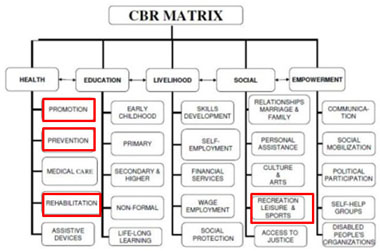The 3rd Asia-Pacific CBR Congress
Theme: Applying information technology in cognitive rehabilitation of elderly By Samantha Cheung Wing-sze, Hong Kong Society for Rehabilitation Present in session “1.1 Disability and Ageing Society”
Backgrounds
As a metropolis, over 80% of the Hong Kong households have opportunities to get access to computers (HKSAR government, 2013). Access to computer, internet and related technology are perceived as one of the indicators of social inclusion. However, a considerable number of disadvantaged and deprived people have still been left behind (HKCSS, 2014).
Elderly with cognitive impairment has become a major public health challenges globally. A great number of elderly suspected of having this problem are undetected which may be due to the misconceptions in the general public about dementia. Some are reluctant to attend formal treatment due to fear of being discriminated.
In order to provide early interventions for elderly with mild cognitive problems, a three-year project titled “Cognitive Rehabilitation program for clients with Mild Cognitive Impairment and Dementia” was launched. Elderly screened to have cognitive problems were provided with six one-hour sessions of interventions include standardized computer based cognitive training, complemented by application of memory strategies. Caregivers were encouraged to attend to facilitate generalizing the learnt contents at home. The programs aimed to enhance or prevent further cognitive deteriorations in elderly with early or suspected cognitive impairments.
Program relevancy to CBR
The program was originally designed as an accessible community and user-friendly rehabilitation trainings for older adults with mild cognitive impairments. It helped to prevent further cognitive deterioration and promoted brain health via common leisure daily leisure activities ・playing Ipads and computer games. From social perspectives, elderly found they were kept updated, inclusive and closely related to mainstream population, by engaging in recreational activities that are prevalent in society.
In addition, further investigations suggested that cognitive rehabilitation using information technology were also beneficial to healthy aging population by enhancing their cognitive reserve, capacity of the brain to cope with aging or pathologies that affect cognition.
Methods
The evaluation adopted a pre-post assessment design. Only people with mild cognitive impairment (the score of Mini-Mental Status Examination around 20) or early stage of dementia were invited to join the evaluation. The eligible participants were invited to complete the pre-assessment questionnaire before the start of the program and the post-assessment questionnaire at the end of the program. Their scores in MMSE, DRS (Dementia Rating Scale) and subscales of DRS were compared to investigate the preliminary effectiveness of the program on enhancing their cognitive function. Only three subscales of DRS were included in the evaluation including Attention, Initiation/Perseveration and Memory.
Results
A total of 146 were indentified with mild cognitive impairment or early stage of dementia and included in the evaluation. Their baseline assessment results found that the mean score was 25.6 (SD 2.8) and 57.2% showed mild cognitive impairment (MMSE score between 21 and 26). The score of MMSE increased to 26.9 (SD 8.2) significantly (p<0.001). The mean score of MMSE decease 1.4 units in average and hence the improvement was 5.2% by comparing to the baseline results. 24.1% of participants moved from the group of mild cognitive impairment to the group of normal cognitive function.
The mean score of DPS was 85.2 (SD 9.5) in the baseline assessment and increased to 90.2 (SD 7.7) significantly (p<0.001). The subscales of DPS also showed significant increase: proportion of participants with impairment in attention reduced from 3.4% to 0.7%, that in initiation/preservation reduced from 25.5% to 12.4% and that in memory reduced from 35.2% to 24.8%.
Conclusion and recommendations
The preliminary results indicated that the program was effective to enhance participants’ cognitive function. Delivering cognitive rehabilitation through information technology (IT) can be served as a sustainable community based-support for elderly with cognitive impairment and their caregivers so as to render continuous interventions to prevent further deterioration.
Development of user-friendly training software for elderly also helps bridging the digital divide between elderly and society and deemed as normalizing experience. Incorporation of IT can extend to self-management of other chronic diseases pilot in other developing regions.
Slide 1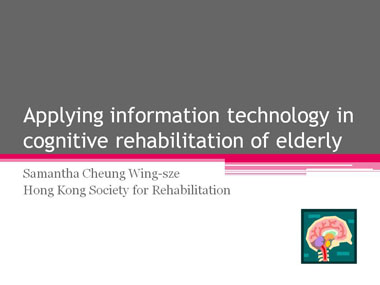 (Slide 1 text)
(Slide 1 text)
Slide 2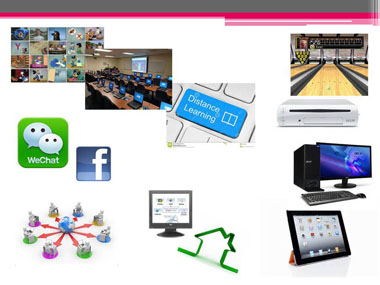
Slide 3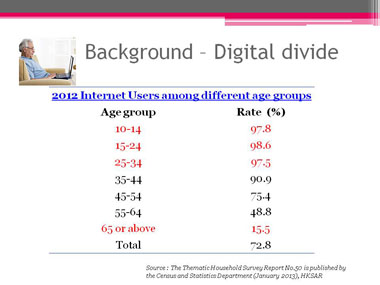 (Slide 3 text)
(Slide 3 text)
Slide 4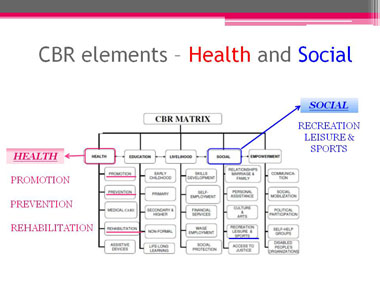 (Slide 4 text)
(Slide 4 text)
Slide 5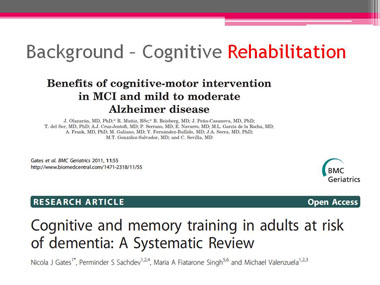 (Slide 5 text)
(Slide 5 text)
Slide 6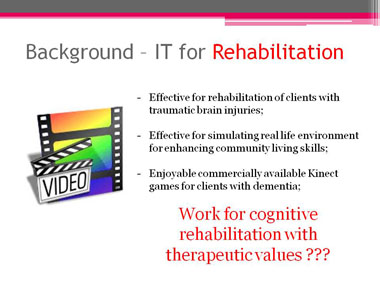 (Slide 6 text)
(Slide 6 text)
Slide 7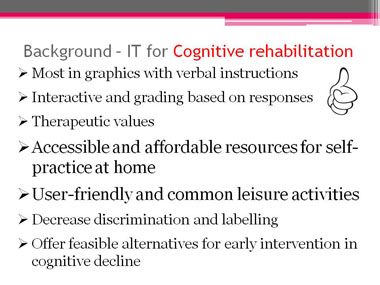 (Slide 7 text)
(Slide 7 text)
Slide 8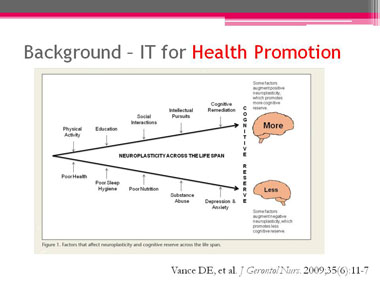 (Slide 8 text)
(Slide 8 text)
Slide 9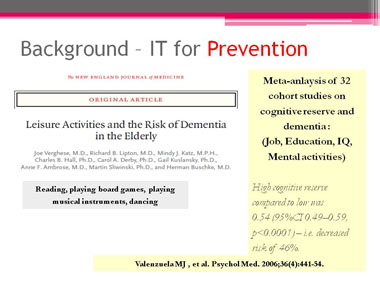 (Slide 9 text)
(Slide 9 text)
Slide 10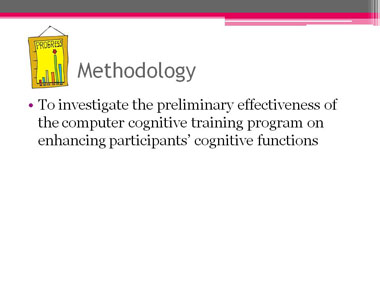 (Slide 10 text)
(Slide 10 text)
Slide 11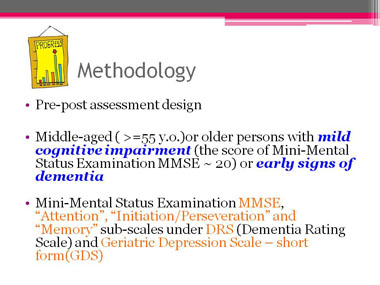 (Slide 11 text)
(Slide 11 text)
Slide 12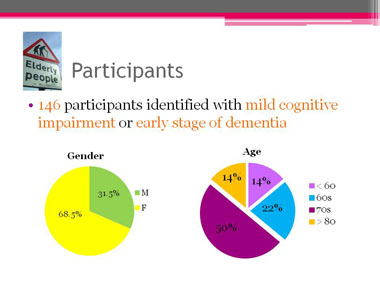 (Slide 12 text)
(Slide 12 text)
Slide 13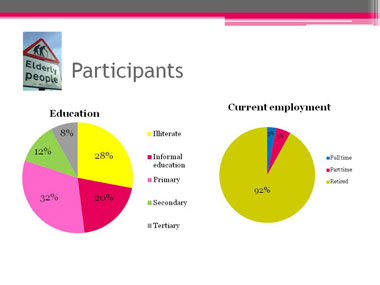 (Slide 13 text)
(Slide 13 text)
Slide 14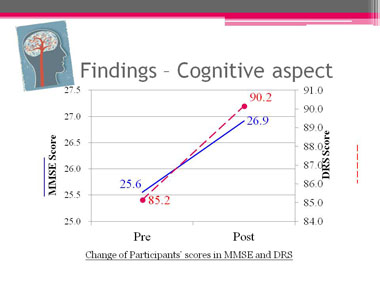 (Slide 14 text)
(Slide 14 text)
Slide 15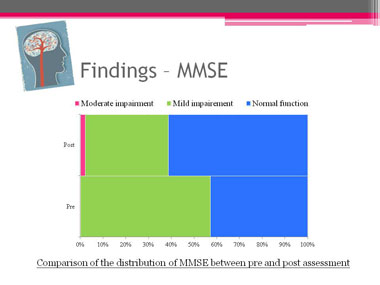 (Slide 15 text)
(Slide 15 text)
Slide 16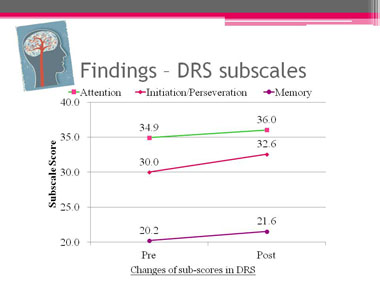 (Slide 16 text)
(Slide 16 text)
Slide 17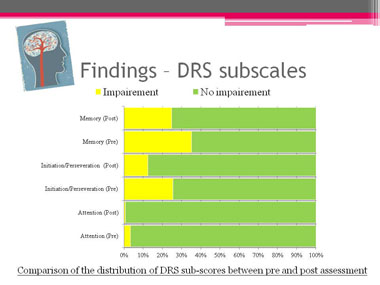 (Slide 17 text)
(Slide 17 text)
Slide 18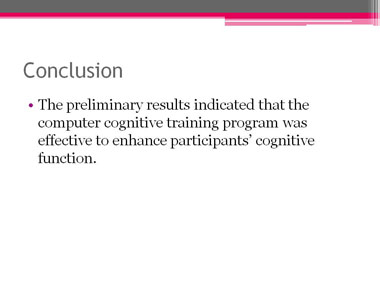 (Slide 18 text)
(Slide 18 text)
Slide 19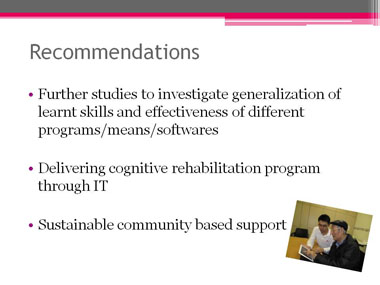 (Slide 19 text)
(Slide 19 text)
Slide 20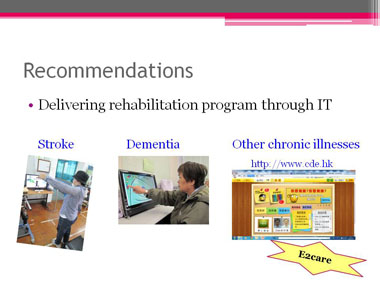 (Slide 20 text)
(Slide 20 text)
Slide 21 (Slide 21 text)
(Slide 21 text)

